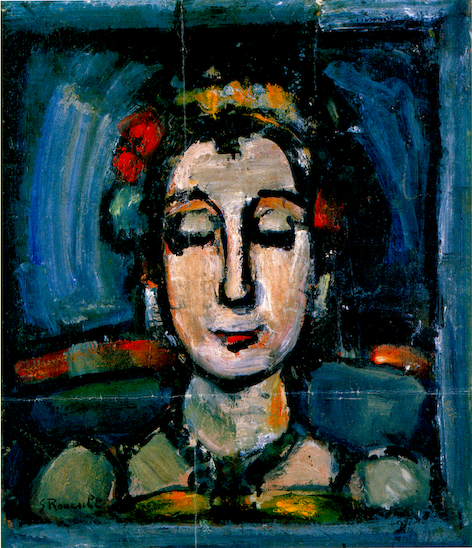


盗まれた頭蓋骨と奪われた魂 : アメリカ先住民の文化を取り戻す戦いの中で
CHIP COLWELL's Plundered Skulls and Stolen
Spirits: INSIDE THE FIGHT TO RECLAIM
NATIVE AMERICA’S CULTURE
Why museums are returning cultural treasures
考古学者で学芸員のチップ・コルウェルは、博物館の ために遺物を収集する仕事についているが、同時に、遺物を元の場所に戻す作業にも従事している。また、文化財の返還を求めるコミュニティとの溝を埋めるた めに、どのような取り組みをしているのか、示唆に富む話をしている(→「遺骨はすべからく返還すべし」)。
● Chip Colwell, Plundered Skulls and Stolen Spirits: Inside the Fight to Reclaim Native America's Culture. University of Chicago Pres, 2017.
Chip Colwell, Why museums are returning cultural treasures. by TED talk.(上掲のYouTubeのオリジナルですが、画像が綺麗で日本語のサブタイトルがあります)
"Who owns the past and the objects that physically connect us to history? And who has the right to decide this ownership, particularly when the objects are sacred or, in the case of skeletal remains, human? Is it the museums that care for the objects or the communities whose ancestors made them? These questions are at the heart of Plundered Skulls and Stolen Spirits, an unflinching insider account by a leading curator who has spent years learning how to balance these controversial considerations. Five decades ago, Native American leaders launched a crusade to force museums to return their sacred objects and allow them to rebury their kin. Today, hundreds of tribes use the Native American Graves Protection and Repatriation Act to help them recover their looted heritage from museums across the country. As senior curator of anthropology at the Denver Museum of Nature & Science, Chip Colwell has navigated firsthand the questions of how to weigh the religious freedom of Native Americans against the academic freedom of scientists and whether the emptying of museum shelves elevates human rights or destroys a common heritage. This book offers his personal account of the process of repatriation, following the trail of four objects as they were created, collected, and ultimately returned to their sources: a sculpture that is a living god, the scalp of a massacre victim, a ceremonial blanket, and a skeleton from a tribe considered by some to be extinct. These specific stories reveal a dramatic process that involves not merely obeying the law, but negotiating the blurry lines between identity and morality, spirituality and politics. Things, like people, have biographies. Repatriation, Colwell argues, is a difficult but vitally important way for museums and tribes to acknowledge that fact and heal the wounds of the past while creating a respectful approach to caring for these rich artifacts of history." - Nielsen BookData.
「過去と私たちを物理的に結びつける物体は誰のもの
なのだろうか。また、その所有権を決定する権利は誰にあるのだろうか。特に、対象が神聖なものであったり、遺骨の場合は人間のものであったりする場合、そ
の権利は誰にあるのだろうか。遺物を管理するのは博物館なのか、それとも遺物を作った祖先のコミュニティなのか。これらの疑問は、『Plundered
Skulls and Stolen
Spirits』の核心部分である。この本は、第一線のキュレーターが、長年にわたって、これらの論争の的となる考慮点のバランスをとる方法を学んでき
た、冷静な内部事情についての説明である。50年前、ネイティブ・アメリカンの指導者たちは、博物館に聖なるものを返還させ、彼らの親族を埋葬することを
認めさせるために運動を始めてきた。今日、何百もの部族が「アメリカ先住民の墓の保護と返還に関する法律」を使って、全国の博物館から略奪された遺産を回
収する手助けをしている。デンバー自然科学博物館の人類学シニア・キュレーターであるチップ・コルウェルは、アメリカ先住民の信仰の自由と科学者の学問の
自由をどう比較検討するか、博物館の棚を空にすることは人権を高めるのか共通の遺産を破壊するのか、という問題を身をもって体験してきた。本書は、生きた
神のような彫刻、虐殺の犠牲者の頭皮、儀式用の毛布、絶滅したと思われていた部族の骨格という4つの品物が作られ、集められ、最終的に元の場所に戻される
過程を、彼自身が記録したものである。これらの具体的なエピソードは、単に法律を守るだけでなく、アイデンティティと道徳、精神性と政治の間の曖昧な境界
線を交渉する劇的なプロセスを明らかにしている。人と同じように、物にも伝記がある。コルウェルは、博物館と部族がこの事実を認識し、過去の傷を癒すと同
時に、これらの豊かな歴史的遺物を大切に扱うための、難しいが極めて重要な方法であると主張している」(https://www.deepl.com/ja/translator による翻訳)。
Introduction
I. Resistance: War Gods
1. Only After Night Fall
2. Keepers of the Sky
3. Magic Relief
4. Tribal Resolution
5. All Things Will Eat Themselves Up
6. This Far Away
II. Regret: A Scalp from Sand Creek
7. I Have Come to Kill Indians
8. The Bones Bill
9. We Are Going Back Home
10. Indian Trophies
11. AC.35B
12. A Wound of the Soul
III. Reluctance: Killer Whale Flotilla Robe
13. Masterless Things
14. Chief Shakes
15. Johnson v. Chilkat Indian Village
16. Last Stand
17. The Weight Was Heavy
18. Our Culture Is Not Dying
IV. Respect: Calusa Skulls
19. The Hardest Cases
20. Long Since Completely Disappeared
21. Unidentifiable
22. Their Place of Understanding
23. Timeless Limbo
24. Before We Just Gave Up
Conclusion
A Note on the Terms American Indian, Native American, Etc.
Acknowledgments/ Notes/ Index
本文……
●チップ・コルウェルさんのテーゼ
1)遺骨の盗骨行為のなかに、それを見守る/知っている地元民や先住民のあいだには「否定的感情」があったことが認められる。また、しばしば、地元民や先住民は、そのことを専門家に警告している。
2)返還というのは、一時的な行為でなく、一連の時間的行為であり、時間を積み重ねる儀礼的行為である。
3)返還は、奪われた先住民の魂の「回復」の一環である。
4)努力すれば遺骨が返還されるわけでない——継続的な活動が不可欠
5)返還は憑在の人類学に関わる行為である。
6)返還は、すべての人間にとっての「未来を形作る」実践である。
7)返還は倫理的行為である。
8)これまで科学研究で、かつて「許された研究」が後に「ゆるされない行為」として認定されることはしばしばある。
9)遺骨返還にまつわるイシューにおいて、専門家は少なくとも4つの「正当化」をおこなう:1)遺骨は世界の遺産である、2)歴史の真の管理者は専門家である、3)専門家には守られるべき言論の自由がある、4)専門家が扱う知識は神聖なものである
●部族財産の保護 (STOP) 法
2021 年の STOP 法 (PL
117-196) は、アメリカ先住民の墓保護および本国送還法 (NAGPRA) および考古学資源保護法 (ARPA)
に基づいて人身売買が禁止されている文化財の国際輸出を阻止することを目的としている。内務省 (DOI) は、STOP
法の規制草案の策定に関して部族の意見を求めている。出典:https://www.bia.gov/service/tribal-consultations/safeguard-tribal-objects-patrimony-stop-act-draft-regulations
●コルウェルさんによる2022年の出来事
Links
リンク
文献
その他の情報


